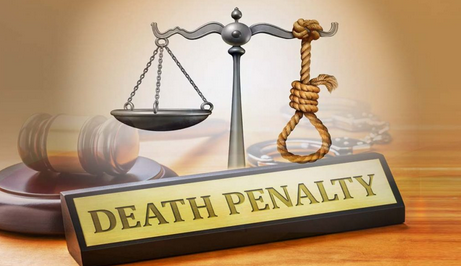Capital Punishment
The somber atmosphere of the courtroom couldn’t be helped. The air hung heavy with silence, laden with the weight of impending finality. Finally, the judge spoke. He spoke with a clear and firm tone and with his last words said, the whole courtroom could finally let out a breath. The whole courtroom, except one person; Sir Carlos DeLuna, was sentenced to “death by lethal injection by the law of Texas”.
Capital punishment for so long has remained a contentious issue in both the justice system and society due to its moral struggles. Though many still argue the necessity of such a law, with international human rights organizations fighting against the brutality of the ultimate punishment, the repeal of capital punishment has been a trend in many countries.
Firstly the death penalty lacks a deterrent effect. Research has consistently proved that death by law does not effectively deter crime compared to a life sentence without parole. According to the Death Penalty Information Center (DPIC), states in the US without capital punishment have reported lower murder rates compared to the states with such laws. During the last 20 years, the homicide rate of states with the execution law has been 48%, which is 101% higher than those of states such as Delaware, Maryland, and Colorado. Moreover, the abolishment of the death penalty in Canada in 1975 proved a detrimental decrease in crime rates. For instance the murder rate per 100,000 people dropped from about 4 persons to 1.7 which is a decline of more than 50%.
Another factor to consider is the economic benefit for the government and taxpayers. Though many supporters of the law mistakenly believe that capital punishment plays a role in decreasing the high prison maintenance fees, the economic benefits from eliminating the death penalty are far greater. Capital punishment cases are notoriously expensive due to their complexity and the necessity to ensure thorough judicial processes. From the initial trial through to appeals, legal expenses in death penalty cases far exceed those of non-capital cases. For instance, in the United States, death penalty cases can cost approximately $1 million more than life imprisonment cases. Moreover, individuals on death row often require separate housing and greater security measures, which increases maintenance costs compared to general population inmates. The special management involves heightened security measures and can lead to higher costs for facilities and staff. Removing the death penalty would allow for a more standardized and economically efficient prison management system.
One of the most compelling arguments to this topic comes from the possibility of wrongful convictions. According to the Innocence Project, a prominent criminal justice organization, DNA evidence has led to the exoneration of over 375 wrongfully convicted people in the United States since 1989, including 21 who were on death row. This statistic underscores the fallibility of the criminal justice system and the grave risk that errors—once executed—cannot be undone. The case of Mr. Carlos DeLuna unfortunately emphasizes the severity of the punishment.
On the evening of December 7, 1989, the halls of the Texas State Penitentiary at Huntsville were more silent than usual, as if the walls themselves were holding their breath. The guards escorting Carlos were professional but not unkind, their faces stoic, performing duties no less burdensome for their routine nature. Carlos, dressed in the plain white uniform of the condemned, moved with a quiet resignation. His eyes, once filled with a vibrant fire, now mirrored the resignation of a man who had come to terms with his fate, however unjust he and many others felt it to be. But indeed it was unjust for in the year of 2012, with new documents of evidence being released to the press, it was publicly acknowledged that the man convicted of a seven man homicide was in fact innocent. Attorney Bryan Stevenson once quoted, “The death penalty is not about whether people deserve to die for the crimes they commit. The real question of capital punishment in this country is, “Do we deserve to kill?” Indeed, do we deserve to kill for no clear benefits even if it means that we may be risking an innocent individual; no is the emphatic answer.
Yuha Lee

